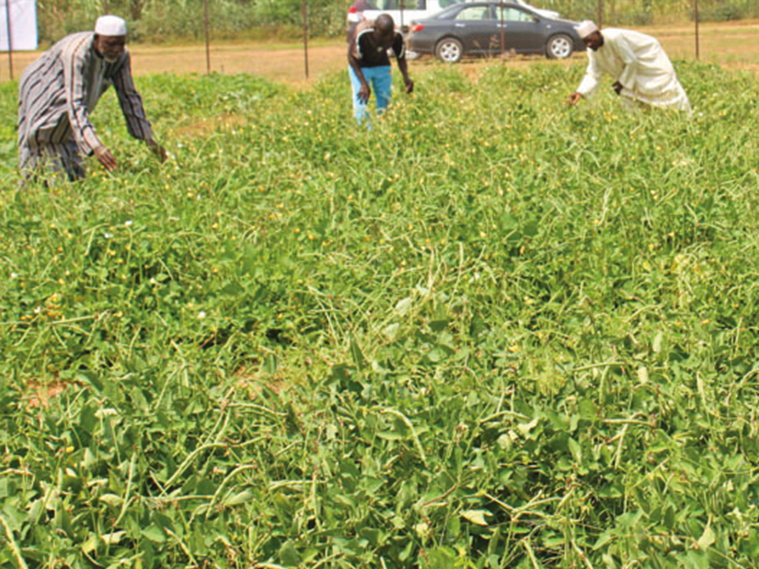By Dr. Denis T. Kyetere
Our promise to Africa and especially the smallholder farmer is to deliver technological innovations that will address specific agricultural productivity challenges and transform livelihoods. This promise is hinged on our belief that innovative technologies will unlock the potential of African smallholder farmers in their struggle to feed the population. We also believe these technologies will help farmers in their battle to reverse the low agricultural productivity on the continent and that they deserve the best available technologies to solve their production constraints like other farmers in the developed world. We persist with this commitment and rejoice each time progress is made towards getting these technologies to farmers as it also promises improved health and wealth of our people.

One such promise led to the approval granted in January 2019 by the Government of the Federal Republic of Nigeria for the commercial release of Pod Borer Resistant Cowpea.
This approval comes after ten years of successful confined field experiments and farmer-managed trials, which were undertaken at the Institute for Agricultural Research, Ahmadu Bello University, Zaria.
This development is a giant win for African farmers, scientists, business men, women and consumers considering that Cowpea is one of the most important food grain legumes in the tropics and especially for Nigeria, Africa’s biggest producer, consumer and importer of cowpea, growing an estimated 3.1 million tons annually. This accounts for more than 58 percent of the world total output of 5.4 million tons.
However, a serious problem for cowpea production is its susceptibility to attack by pests and diseases. Cowpea in Africa is attacked by a range of very damaging insect pests, both on the field as well as during storage after harvest. A particularly damaging insect is the Pod Borer Maruca that can cause losses as high as 80% of total crop production every year according to documented evidence.
As a result, AATF and a consortium of public and private partners intervened and today the story has changed. The sole goal of the partnership was to develop farmer-preferred and locally adapted pod borer resistant (PBR) cowpea for Sub-Saharan Africa (SSA). They worked round the clock to ensure that resource poor smallholder farmers in Africa are given the opportunity to make a livelihood from farming.
The result of the work undertaken is a cowpea that produces more grain yield (20-80%) for farmers because of reduced damage and requires less insecticidal sprays from 6-10 to only 2 per season meaning immediate health and environmental benefits.
The approval granted by the Federal Government of Nigeria is a demonstration of its belief in the smallholder farmer and the important role they play in feeding Africa and support for technology in improving Africa’s agriculture.
This breakthrough with PBR cowpea is a key element to strengthening the cowpea value chain for agribusiness development in Nigeria and within the sub-region
AATF appreciates the role that each partner played in moving the PBR Cowpea closer to the farmers. It is not possible to call out each of the partners, but we wish to recognise the financial investor, the USAID, for believing in and sustaining their support.
We look forward to the day that farmers have the seed in their hands and benefit from its qualities.



































































